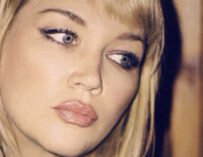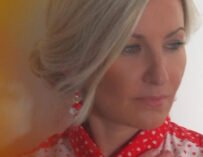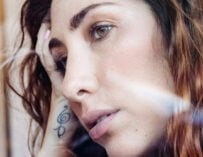
Zak Abel: “You have to be willing to make really dumb things and you have to not be afraid to be wrong”
A love of table tennis and recent struggles with otosclerosis have helped shape this seriously talented pop singer and songwriter
Singer and songwriter Zak Abel has established himself as a serious talent dedicated to creating music with a message. Crafting his first song, Haze, at age 14, he began posting his music online soon after. This led to Abel signing a record deal and collaborating with music producer, Joker, for an EP release in 2015. He went on to put out his debut album, Only When We’re Naked, in 2017, and write for artists like Kygo, Paloma Faith and John Legend, and R3hab and Zayn.
Abel’s sound memorably combines soulful R&B and pop. Purposeful themes thread through recent tunes like Right Side Of The Bed, Be Kind, and most recently, Less Of A Man, for which Abel drew from his personal experiences of going against the grain of traditional masculinity. With the lyrics, “If I spend all day singing love songs, baby/And if I can’t build a house with my hands/If I go see a therapist, don’t play football and I don’t drink/ Does it make me less of a man?” he has sparked a valuable conversation on the broadening characterization of bona fide manliness.
Speaking to us, Abel details his start in songwriting, his upcoming show at KOKO on 18 May and tour dates with Paloma Faith in June, and the importance of writing music from a personal perspective…
Click here for more interviews
What were some of your childhood traits?
“I was a really cheeky kid. I’m a pretty cheeky adult as well. I liked sport growing up. I’ve always been quite musical, always been singing, and I’d say I was always quite annoying. Yeah, that probably stuck with me for quite a long time.”
You used to play table tennis competitively. What was that experience like for you?
“For me, it was what I thought I was going to do for the rest of my life, from nine to fifteen. I was training all the time, and I was representing England across the world. I loved it. I still do love it.”
Looking back, do you feel like table tennis prepared you for what you do now?
“Definitely. I think resilience is something which I learned a lot from it, which I’m sure any sportsperson would develop over the years because, when you’re trying to improve in any kind of skill set, especially sports, you fail a lot, you get things wrong and you lose in competition. And then you have to go back to the drawing board and try and figure out what you could have done better. Music is very, very similar. You have writing sessions where you don’t come up with anything, and sometimes you just have to think, ‘Oh, why did I not come up with anything good?’
“But then you also have to forgive yourself and try again. It’s very similar in that respect. I have quite a competitive mindset, and that has helped me in music because in certain things, like live shows, I like to try and be the best performer I can be on stage. Whether that’s finding the best musicians, arriving at rehearsals on time, not going out before rehearsals, having an early night… trying to give myself the best chance to perform at my best, things like that, I learned from table tennis.”
When did you start songwriting?
“I was about 14 when I started writing songs. I was going through a period in my life when I wasn’t sure which school to go to. I had a 100 percent bursary to get into this private school, and we couldn’t afford to go to the school if we didn’t have the bursary. My mom and I wanted to leave that school so that I could pursue table tennis at this other school, which wasn’t an amazing school to go to academically, and I just found the whole decision-making process at 14 really overwhelming. So I decided to write about that, and I wrote this song called Haze because I felt as though I was in a haze mentally.
“I suppose looking back on it, I was probably experiencing some sort of anxiety, and my defence mechanism against that was to feel detached from reality and experience this haze. Writing about it, I found [to be] really cathartic…it really gave me the confidence to pursue songwriting because I’d show my friends and they’d be like, ‘That’s so cool that you wrote a song.’”
What advice would you give to other songwriters who are just starting out?
“If I could give a few tips, study what’s on the radio. I would say break it down into chords and figure out which melodies people are using in relation to the chord. So whether it’s first, thirds, fifths, sevenths, ninths, et cetera, and you’ll recognize that there are some patterns. If you’re a songwriter or an artist who is dealing with record labels, they’ll use words such as ‘big’, ‘smash’, ‘exciting’, and ‘hooky’. Oftentimes what they mean is first, thirds and fifths. But they don’t play instruments. They’ll never be able to explain that to you.”
Less Of A Man has such a great message, what was the catalyst for writing it?
“Growing up, I was never really, in quotation marks, a “manly man.” Even now, I don’t consider myself to be a manly man by the standards that historically we’ve judged men on. I’m quite sensitive. I’m quite emotional and emotionally intelligent, I’m open about lots and lots of things and I’m very uncomfortable naturally with violence and things that historically would have been associated with being a manly man.
“The song was basically inspired by my own experience of not feeling like I am a manly man or ever having been a manly man, then analysing the reasons why I don’t feel like I’m a manly man and thinking, actually, is this a useful metric to judge whether a man is a real man? Or actually, should we be thinking about these traits, whether that’s sensitivity [or] accountability, as masculine and feminine traits, or…could [we] just look at them instead as useful or unuseful traits, depending on the circumstances?”
How does it feel to get such a strong positive response to the song from fans?
“It’s been amazing, honestly. It’s just led to so many interesting conversations that I’ve had with people where we’re discussing masculinity, and gendered terms as well. That’s been really interesting. It’s also given way to conversations about mental health and about men opening up more and emphasising the point that, if a man does open up and reaches out for help, it doesn’t make him less of a man. That’s something which I really feel strongly about, and so I wanted to write a song about that.
“I also did it in collaboration with a charity based in the U.K. called CALM, which stands for Campaign Against Living Miserably. It’s a charity that is there to help suicide prevention amongst men and also just suicide prevention [in general], but specifically with a focus on male mental health and trying to reach out to men who are going through a bit of a tough time.”
Do you tend to get inspiration to write your songs from personal experiences or from sources outside of yourself?
“It can be both. I find it easier to write about from the perspective of my own experience. They always say, write what you know, and I know my own experience better than other people’s experience. And also, being a selfish human being, I care about my own experience a lot. One of the things that I’m often thinking about whenever it comes to writing music is, do I enjoy this? Do I enjoy singing it? Does this seem like a good thing to write about, just for me? In order to have that box ticked sometimes, if not all the time, I need to care about what I’m singing about. And it’s easier if it comes from my own perspective.”

Zak Abel: “To connect with people who love my music and support me is just such a beautiful thing”
Absolutely, that makes sense…
“Also…I actually spent maybe like the past year or so writing more from my personal perspective, as opposed to writing about things. The year before that, I was writing more about things that were going on in the world, ideas and, [addressing], what do I think about that? That was fun because I was like, ‘Okay, I don’t actually have to write about me and my experience. I can just write about kindness or masculinity.’ In more recent times, I’ve been focusing once again on now, just my experiences with maybe one other person and making it a bit more personal in that respect. I actually find that harder, but the most rewarding when I listen back to the tracks.”
Do you find that, if you write from a personal experience, even if you sometimes feel like you’re the only one going through it, those are the songs that actually touch the most people?
“It’s true. Yeah, 100 percent. I think there’s this idea that if you talk about things in a more general way, it will reach more people, but more and more I’m realising that the tracks which are the biggest tunes, which reach the most amount of people, are actually the more personal ones. There’s that really nice balance between, this is so specific to this person’s life, and yet I feel like I really know what they’re saying and I really understand what they’re going through. And that beautiful balance between specificity and then that being the general thing, which then anyone can listen to and love.”
Congrats on your KOKO show coming up on May 18, and the dates you’ll be joining Paloma Faith on tour as well. How does it feel when you get to play live for fans?
“I love playing live. It scares the shit out of me, but I also absolutely love it. I get so nervous when I go on stage. I think it’s just because you’re about to go into a room and then everyone’s just going to look at you. There’s something weird about 2,000 people staring at you and you’re like, ‘Wait, am I wearing the right clothes?’ But it’s an amazing feeling. It’s terrifying and beautiful, and I get this buzz from it. Also, to connect with people who love my music and support me is just such a beautiful thing. I’m really looking forward to the KOKO show and also supporting Paloma Faith. I’m actually supporting Paloma just acoustic, me and the guitar…I’m pretty excited for that.”
We have to ask you about the song that you performed live in 2018, Vegan. Can you tell us a little bit about the backstory for the song?
“It was such a funny studio session. Literally, I had this idea on the train where I was like, ‘Imagine if you wrote a song about a girl pretending she was vegan just to get with you.’ That just seems like the stupidest idea. It just made me laugh. And then I had a studio session coming up and I was like, ‘Guys, what do you think about this as an idea?’ I think creatively, you have to be willing to make really dumb things and you have to not be afraid to be wrong. I just went into the studio and vibed out, and I honestly think it’s like one of the best songs I’ve ever written which will never be released.”
What can everyone expect from your second album?
“I think it’s mainly going to be kind of what I was describing before, which is more personal instead of going outwards, looking inwards and kind of delving into that, which I found a little bit scary and uncomfortable to do at times, but actually is the most rewarding. Also, in terms of the instrumentation, I really am going to be making the most out of amazing musicians that I’ve met over the years. I really want to make something classic and timeless as well. That’s really important to me, [to make] something which is going to resonate with people in many years to come, and I hope that the music will still be relevant to them as well.”
You recently spoke out about your experiences with otosclerosis. Can you tell me about when you were diagnosed?
“I got diagnosed when I was 21. I got my hearing tested and realised that I’d lost almost half of my hearing in my right ear, so I had a CT scan and an MRI just to check that everything was okay, and [the doctors] said, ‘You’ve got otosclerosis, not only in your right ear, but also in your left ear.’ I had this operation and I was told that I’d be able to go back to work again two weeks after the operation. But for me, that wasn’t the case because firstly, I had stuffing in my ear for six weeks, so I couldn’t really hear much out of that ear until the stuffing was out. Then once it was out, I couldn’t hear in tune for six months. The way that you hear after having the operation is completely different than before the operation. That was a big adjustment period, which was pretty stressful, especially when you need to sing in tune and you’re assigned to a record label where there’s pressure to get stuff recorded and released.
“I also developed tinnitus 24/7 after the operation. And now in my left ear, I’m losing my hearing as well. However, I don’t want to have the operation for as long as I can hold off on it because I don’t know if I’ll be able to hear in tune if I do that. It was such a crazy adjustment period, and I don’t want to go through that again if I don’t have to. So for now, I’m just choosing hearing aids in my left ear and when I’m on stage, I can boost specific frequencies on my in-ear monitors, which makes it better to listen to music and hear myself, and also to protect my ears. So I’ve found solutions and ways to manage it.”
What has that journey been like for you?
“I think one of the most difficult things about it was that there weren’t stories of young people [or] young musicians who’d had otosclerosis and who’d had the operation. So it made it quite difficult and I felt very alone in that journey. Also, I was encouraged by my old manager not to tell the label about it in case they got scared and decided to drop me because I would have been a bad investment.
“And I never did, so I was kind of alone in it. What’s funny, though, is that since having the operation, I was the most successful, commercially anyway, that I’d ever been. So it didn’t really matter that I’d had it done and I’m still able to make music and I found a way to make it work.”
A couple of quick questions to finish with. What artists do you like listening to in your spare time?
“I really like Khruangbin. They’re kind of like [a] funk, instrumental group. I listened to André 3000 in a podcast recently. He said that when he listens to music, he likes to be able to think while he’s listening to it. I really related to that, and that’s why I really like them. I like listening to songs that are either instrumental or songs in a language other than my own because I have no idea what they’re talking about or there are no lyrics, so I can think about other things. I really enjoy that and I find it really relaxing. I listen to a lot of Brazilian music.”
Lastly, what do you most want to accomplish in your music career?
“I’d love to put out an album where I really connect with my deepest truth, whatever that means to me and whatever that means to you. I’d love for it to make people who are listening to it feel connected to me and connected to themselves and feel a little less alone. I’d love to be able to tour the world and see all angles of the world and meet amazing people on the journey, and in doing so, be able to sustain raising a family whilst doing what I love. That, to me, is kind of my goal. I love making music. I love performing music, I love writing it, and I just want to be able to do that for the rest of my life.”
To learn more about Zak and his upcoming live dates visit his site: zakabelmusic.com
Click here for more interviews



































Related Articles